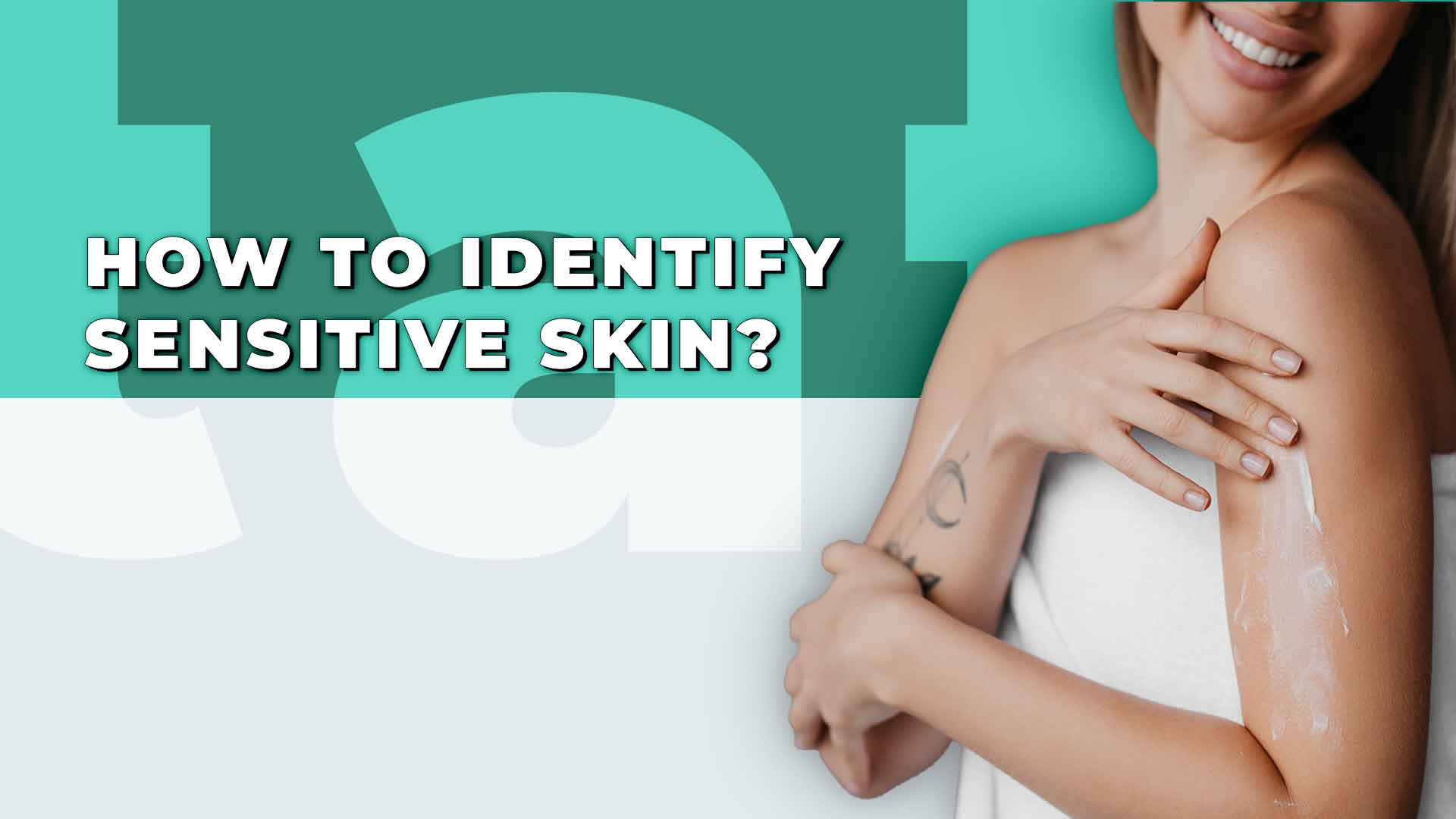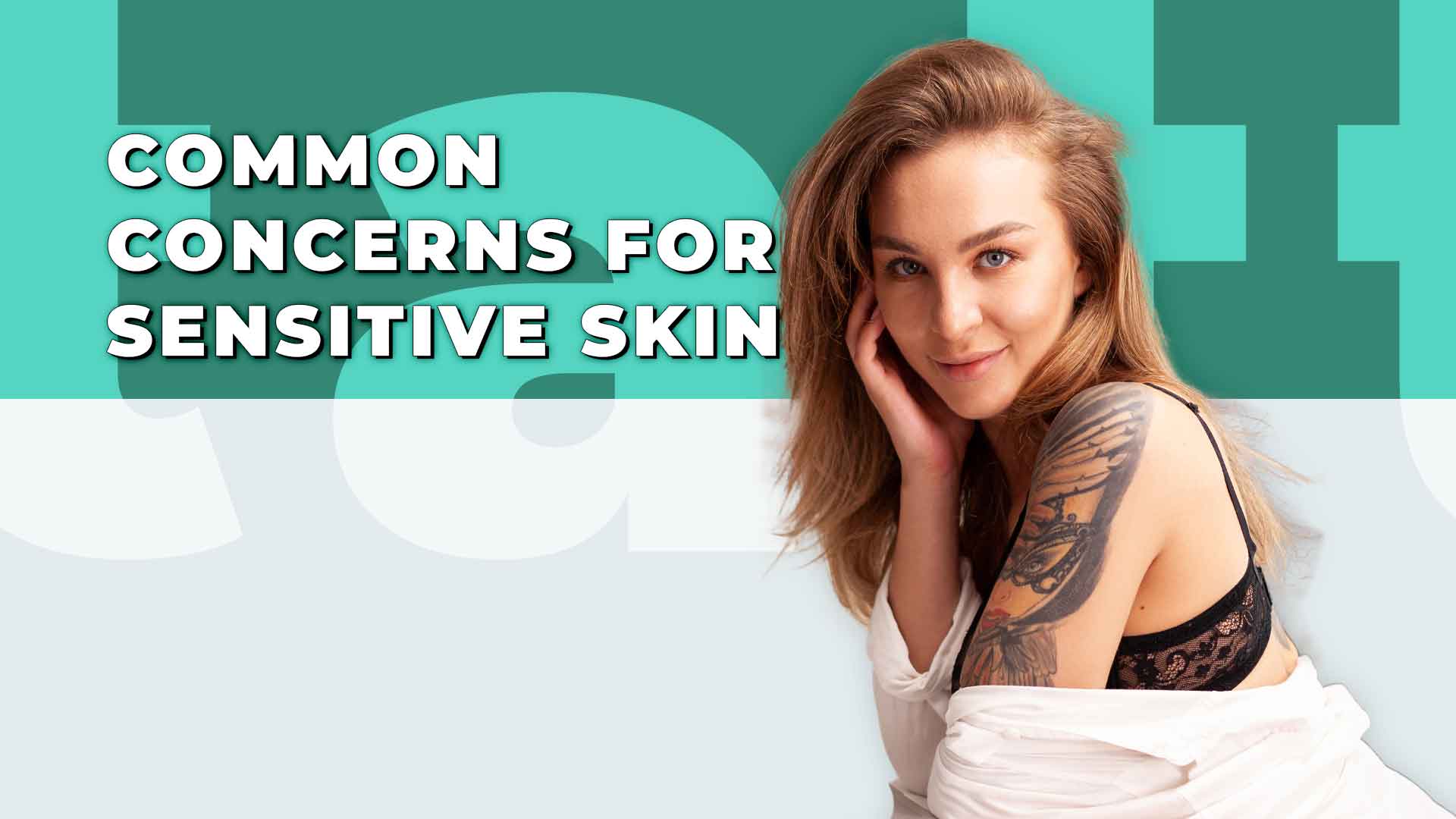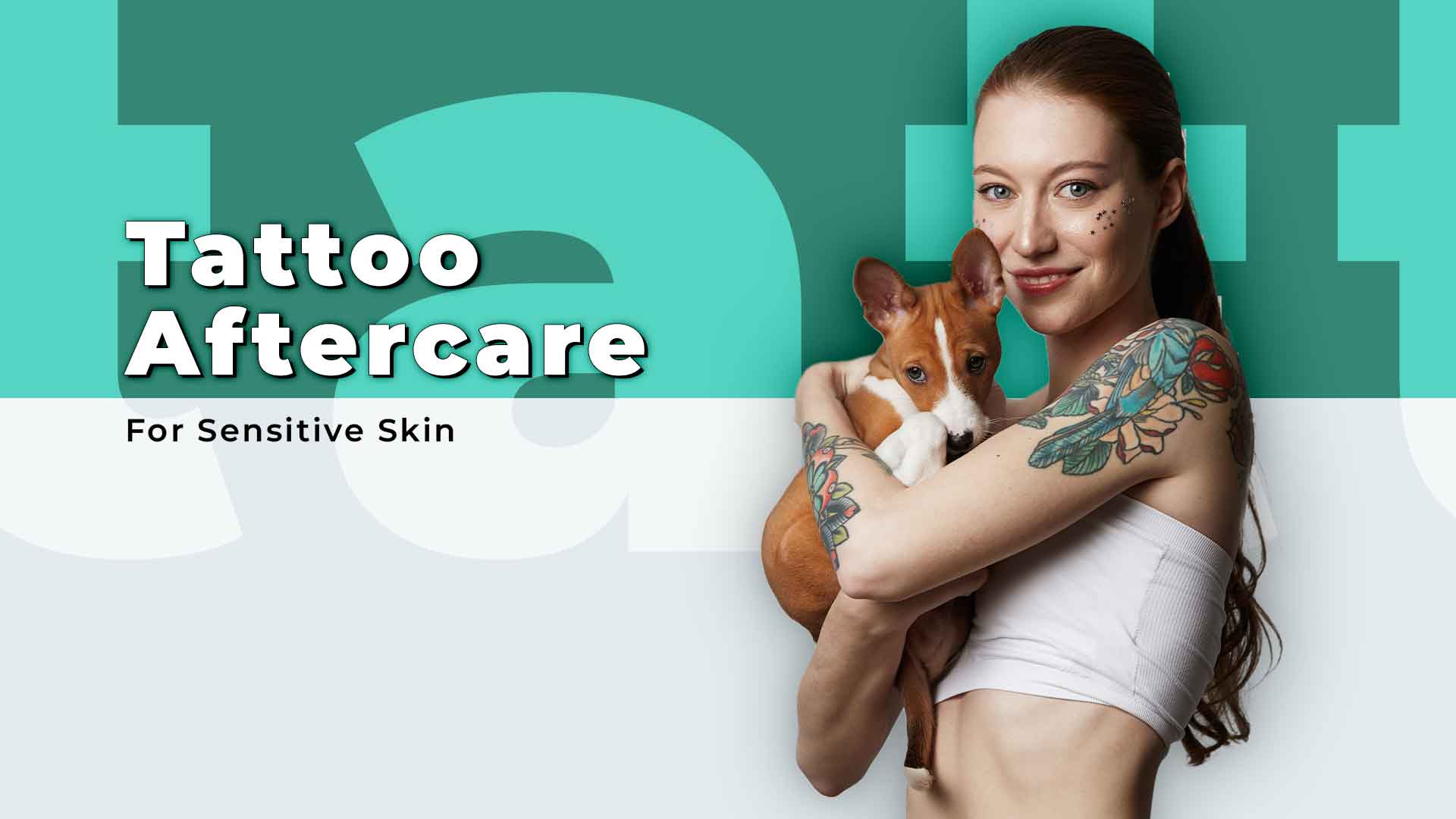Tattoos are a form of self-expression and art, but getting inked can pose additional challenges for individuals with sensitive skin. Sensitive skin can be more prone to irritation, inflammation, and allergic reactions, making proper tattoo aftercare crucial. However, having sensitive skin doesn’t mean avoiding tattoos altogether. With the right precautions and care, individuals with sensitive skin can successfully bear their ink with minimal discomfort and complications.
How to Identify Sensitive Skin

Before getting a tattoo, it’s essential to understand your skin type and determine if you have sensitive skin. People with sensitive skin tend to experience more frequent skin irritations, such as soreness, redness, excessive flaking, and peeling. Conditions like acne and rosacea can also indicate sensitivity. In some cases, sensitive skin may result from allergies, which can be diagnosed through a micro-exposure test conducted by a dermatologist.
Pre-Tattoo Preparations for Sensitive Skin

To ensure a successful tattoo experience, there are several steps individuals with sensitive skin can take before getting inked:
• Research and Choose a Reputable Tattoo Artist
When you have sensitive skin, booking your appointment with a tattoo artist who is experienced in working with sensitive skin types is crucial. Research local tattoo artists and read reviews to find someone who prioritizes proper hygiene, uses high-quality ink, and has a reputation for providing excellent aftercare advice.
• Consult with a Dermatologist
If you have known skin allergies or concerns, it’s advisable to consult with a dermatologist before getting a tattoo. They can assess your skin’s condition, provide personalized recommendations, and perform patch tests to identify potential allergic reactions to tattoo ink.
• Patch Test for Allergic Reactions
As a precautionary measure, a patch test can be conducted by applying a small amount of tattoo ink to a small skin area. This test helps identify any allergic reactions before getting a full tattoo. If you experience any adverse reactions, such as redness, itching, or inflammation, it’s best to avoid using that specific ink.
• Discuss Hypoallergenic Tattoo Ink Options
Some tattoo studios offer hypoallergenic tattoo ink options specifically formulated for individuals with sensitive skin. These inks are free from common allergens and can help minimize the risk of allergic reactions. Discuss these options with your tattoo artist to find the best ink for your skin.
Read Also: What to know before getting a tattoo
Do’s and Don’ts: Tattoo Aftercare for Sensitive Skin

After getting a tattoo, proper aftercare is crucial for individuals with sensitive skin to prevent complications and ensure optimal healing. Here are some essential do’s and don’ts for tattoo aftercare:
Do’s:
• Keep the Tattoo Clean
Clean your tattoo gently with mild, fragrance-free soap and lukewarm water. Use your hands or a clean, soft cloth to avoid excessive friction. Pat the tattoo dry with a clean towel, taking care not to rub or irritate the area.
• Apply a Recommended Moisturizer
A tattoo-specific moisturizer recommended by your tattoo artist or dermatologist is essential for sensitive skin. Look for products free of irritants and allergens, such as those containing fatty alcohols like cetearyl alcohol. Apply the moisturizer thinly and evenly to hydrate the tattoo and promote healthy healing.
• Protect from Sun Exposure
Sun exposure can cause damage to fresh tattoos and increase the risk of complications for sensitive skin. Avoid direct sunlight and cover the tattooed area with clothing or a broad-spectrum sunscreen with a high SPF. Reapply sunscreen as needed, especially if you’re spending time outdoors.
• Keep the Skin Hydrated
Hydration is key for healthy skin and optimal tattoo healing. Drink plenty of water to keep your body and skin hydrated from within. Well-hydrated skin is less prone to peeling, flaking, and inflammation.
• Maintain Skin Breathability
Allow your tattoo to breathe by wearing loose-fitting clothing made of breathable fabrics. Tight clothing can cause friction and trap moisture, leading to irritation and infection. Opt for natural, breathable fabrics like cotton to promote proper airflow to the tattooed area.
Don’ts:
• Don’t Scratch or Pick at the Tattoo
Resist the urge to scratch or pick at scabs or dry skin on your tattoo. Scabbing is a normal part of the healing process, and picking at it can cause damage and potentially remove ink from the tattoo. Let the scabs naturally fall off as the skin heals underneath.
• Avoid Swimming and Soaking in Water
For individuals with sensitive skin, it’s crucial to avoid swimming or soaking in water until the tattoo has fully healed. Pools, hot tubs, and even natural bodies of water can harbor bacteria and germs that can cause infections. Stick to quick showers and avoid exposing the tattoo to excessive moisture.
• Don’t Overapply or Use Harsh Products
While moisturizing is essential, overapplying products or harsh cleansers can irritate sensitive skin. Follow the recommendations provided by your tattoo artist or dermatologist regarding the frequency and amount of moisturizer to apply. Avoid using products containing fragrances, dyes, or other potential irritants.
• Don’t Expose the Tattoo to Direct Sunlight
Direct sunlight can fade and damage tattoos, especially for individuals with sensitive skin. Avoid prolonged sun exposure and protect the tattooed area with clothing or sunscreen. Sunburn can prolong the healing process and increase the risk of complications.
Healing Process and Timeline for Sensitive Skin
The healing process for tattoos on sensitive skin may vary from person to person. However, there is a general timeline and set of stages that most individuals can expect:
• Initial Healing Phase (Days 1-6)
The tattooed area may be red, swollen, and sensitive during the first few days. The skin may form a protective layer of dry scabs, which should not be picked at. Follow the recommended aftercare routine, keeping the tattoo clean and moisturized.
• Peeling and Flaking Phase (Days 7-14)
Around the second week, the tattooed skin will start to peel and flake as the top layer of dead skin cells sheds. This is a normal part of the healing process, and it’s important not to pick or scratch the tattoo. Continue moisturizing and protecting the tattoo from excessive sun exposure.
• Settling and Final Healing Phase (Days 15-21)
By the third week, the tattoo should have settled into the skin, and the peeling should subside. The tattoo may appear slightly dull or hazy during this phase, but it will regain its vibrancy as the skin fully heals. Continue with gentle aftercare and avoid exposing the tattoo to irritants or prolonged sun exposure.
Common Concerns for Sensitive Skin and Tattoo Aftercare

Individuals with sensitive skin may experience specific concerns during the tattoo healing process. Here are some common concerns and how to address them:
• Itchiness and Irritation
Itchiness is a common side effect of the healing process, but scratching can damage the tattoo and prolong healing. To alleviate itchiness, gently tap or pat the tattooed area instead of scratching. Applying a thin layer of fragrance-free moisturizer can also provide relief.
• Redness and Inflammation
Sensitive skin may be more prone to redness and inflammation during healing. Avoid activities and products that irritate the skin, such as hot showers, harsh cleansers, and tight clothing. If redness and inflammation persist or worsen, consult with a dermatologist.
• Signs of Infection
While infections are relatively rare, individuals with sensitive skin should be vigilant for signs of infection. These signs may include increased redness, swelling, warmth, pus, or a foul odor. If you suspect an infection, seek medical attention promptly to prevent complications.
Hypoallergenic Products and Natural Aftercare Options
For individuals with sensitive skin, using hypoallergenic products during tattoo aftercare can help minimize the risk of adverse reactions. Look for fragrance-free, dye-free, and gentle formulations specifically designed for sensitive skin. Additionally, some natural aftercare options can provide soothing effects without harsh chemicals. Aloe vera gel, coconut oil, and shea butter are natural moisturizers that can be applied to the tattooed area.
The Final Thought
Having sensitive skin doesn’t mean you must forego the joy of getting a tattoo. Individuals with sensitive skin can successfully navigate the tattooing process by understanding your skin type, taking necessary precautions, and following proper aftercare. Remember to consult with a dermatologist, choose a reputable tattoo artist, and prioritize gentle aftercare practices. With patience and care, your sensitive skin can bear beautiful ink art without unnecessary complications.

